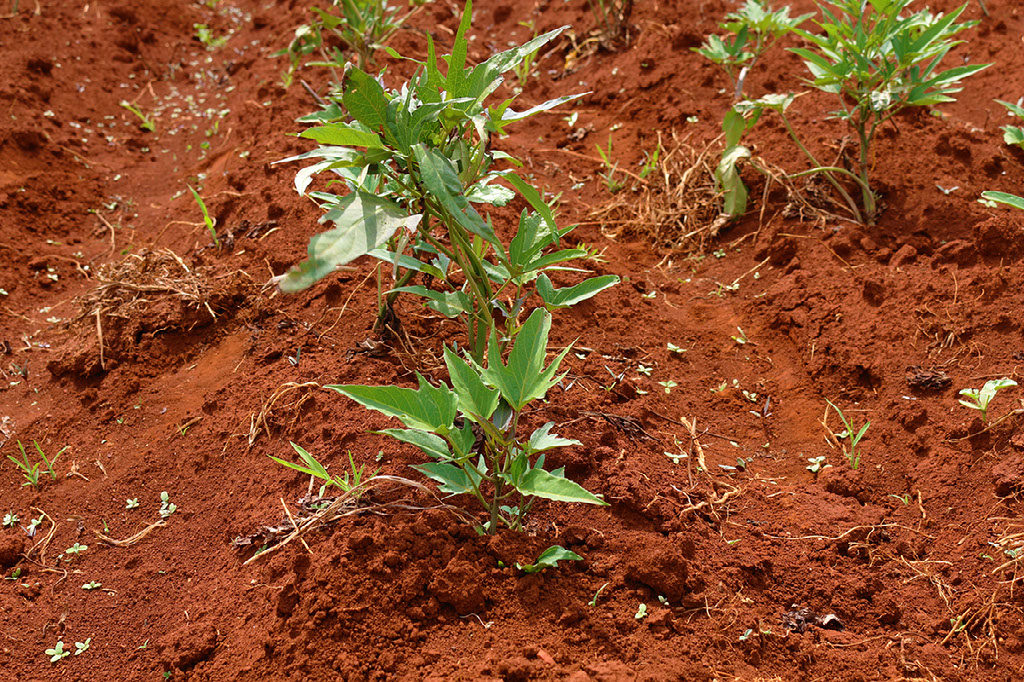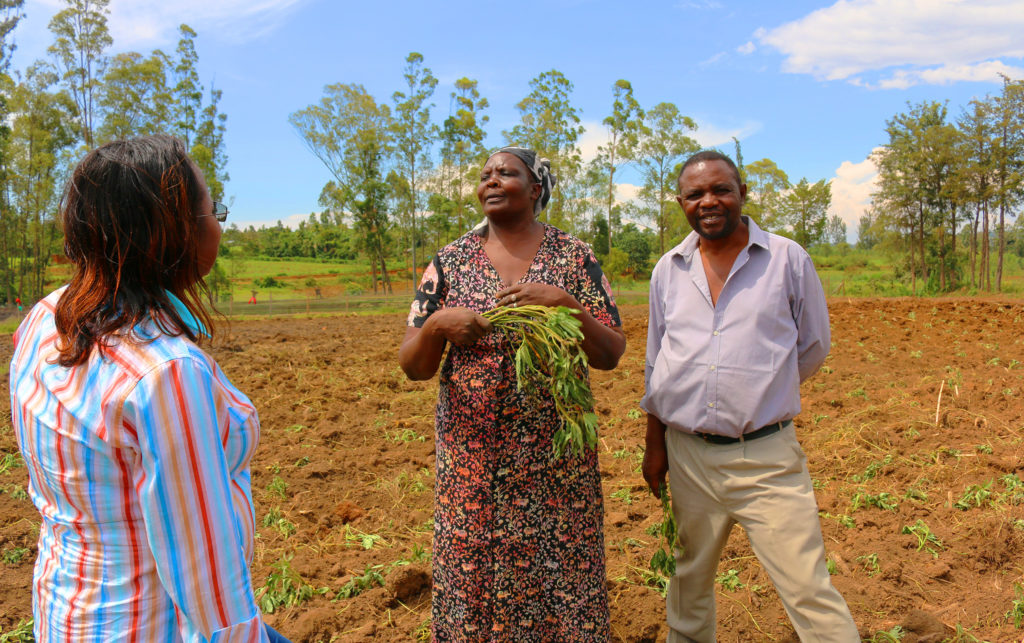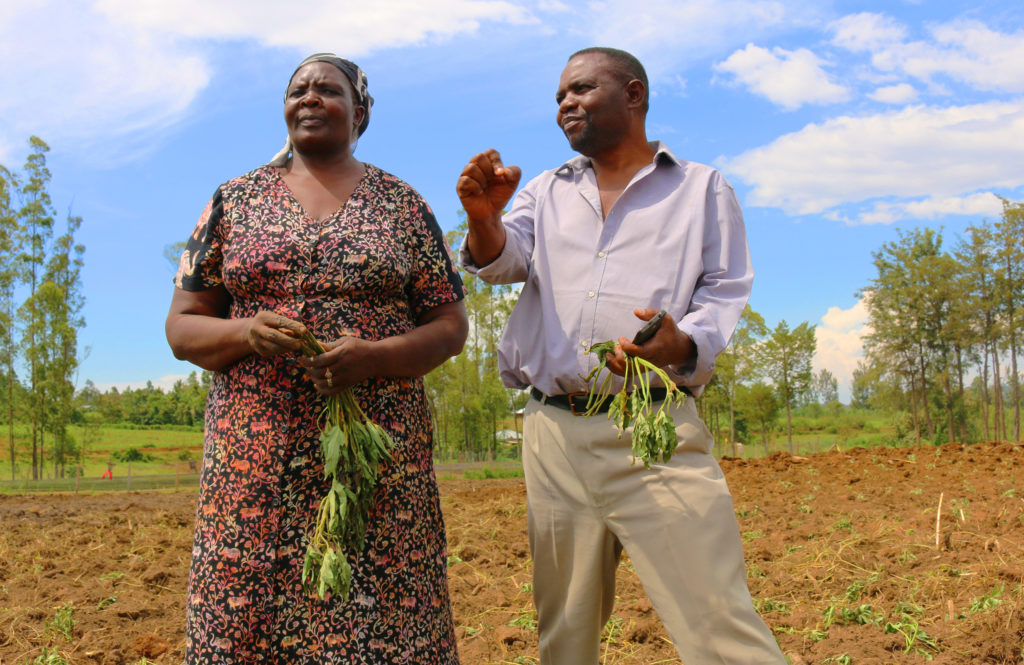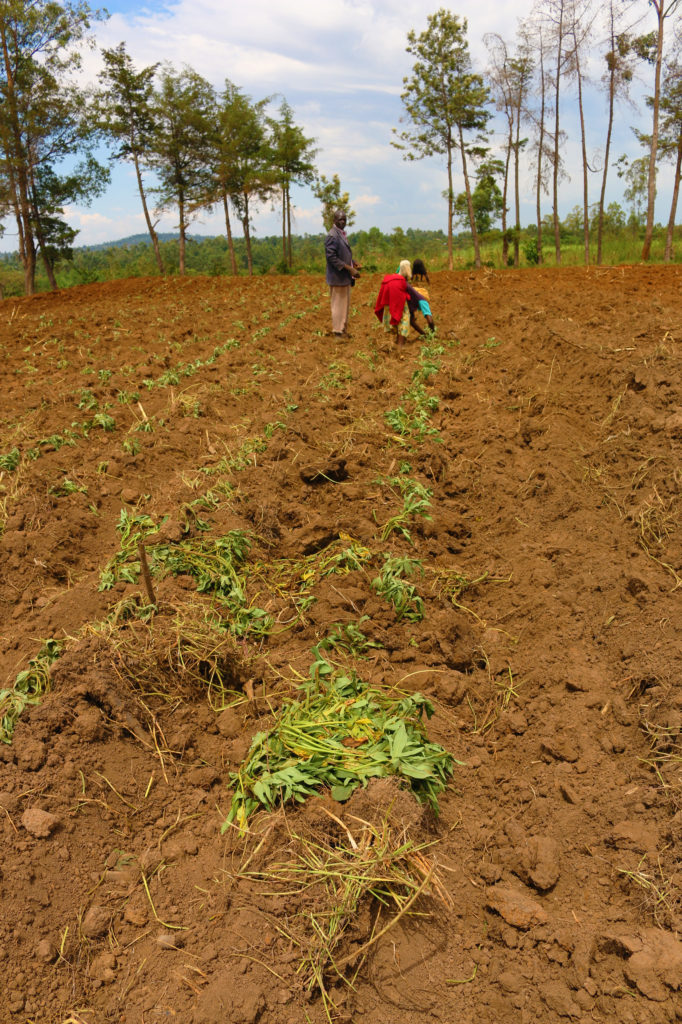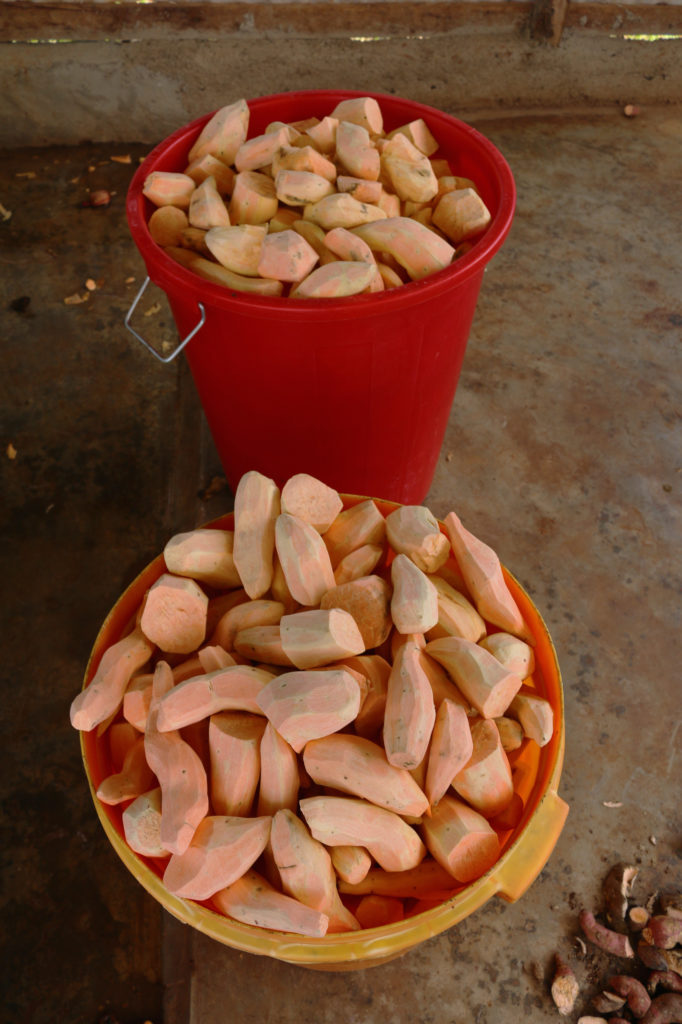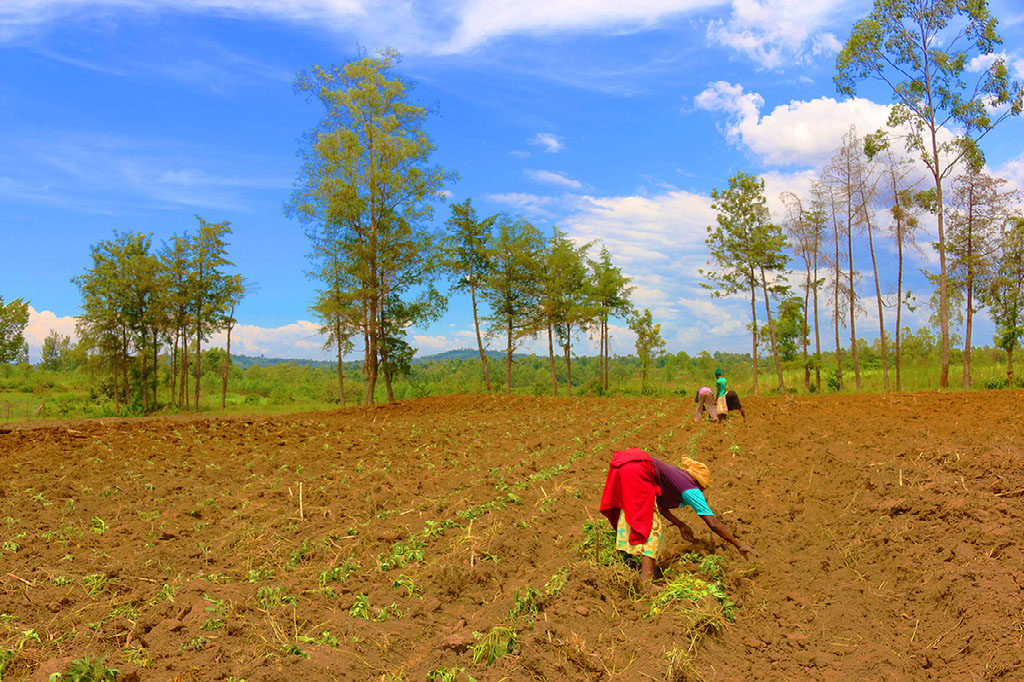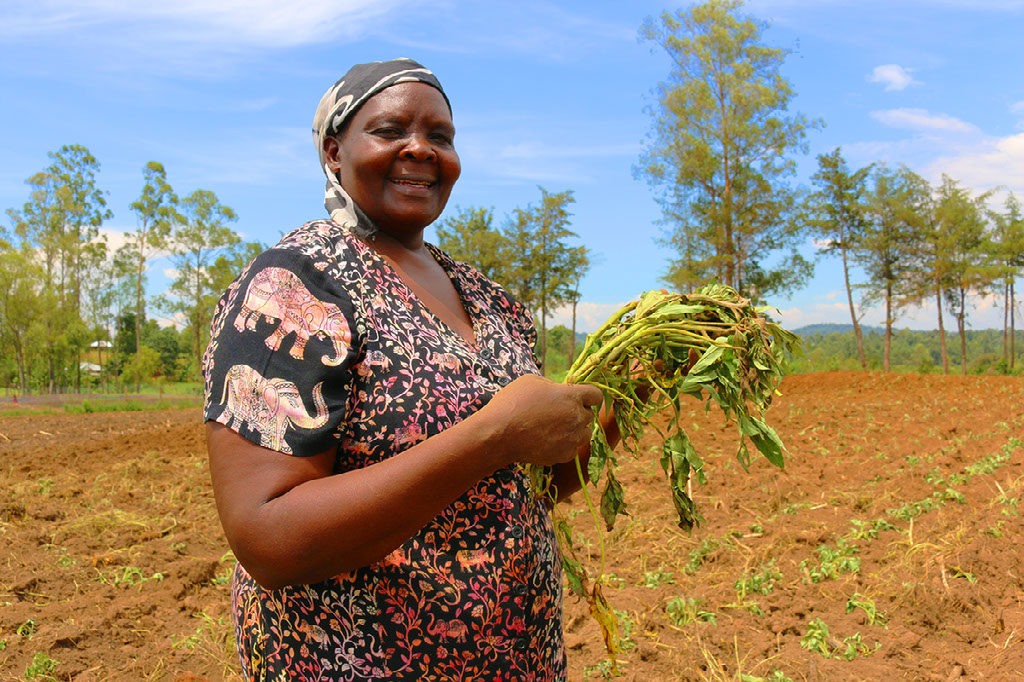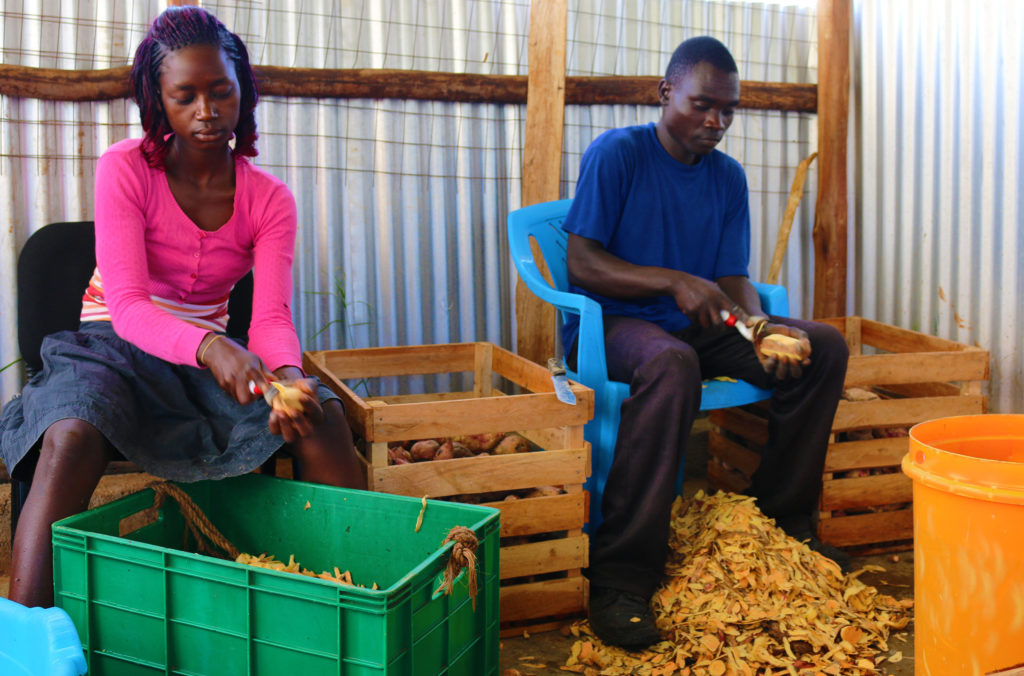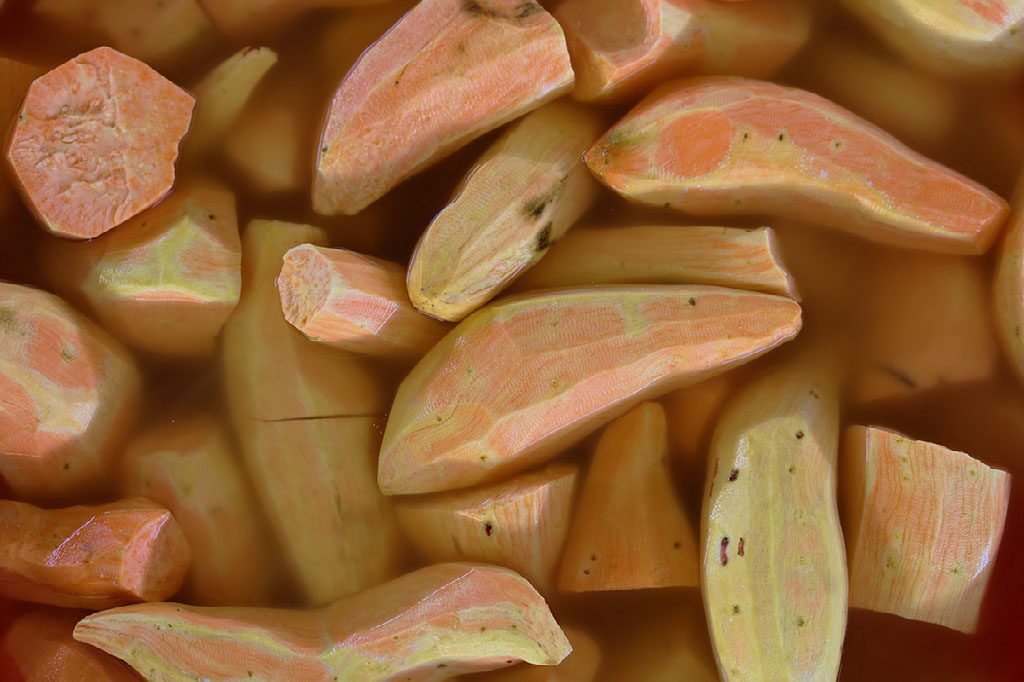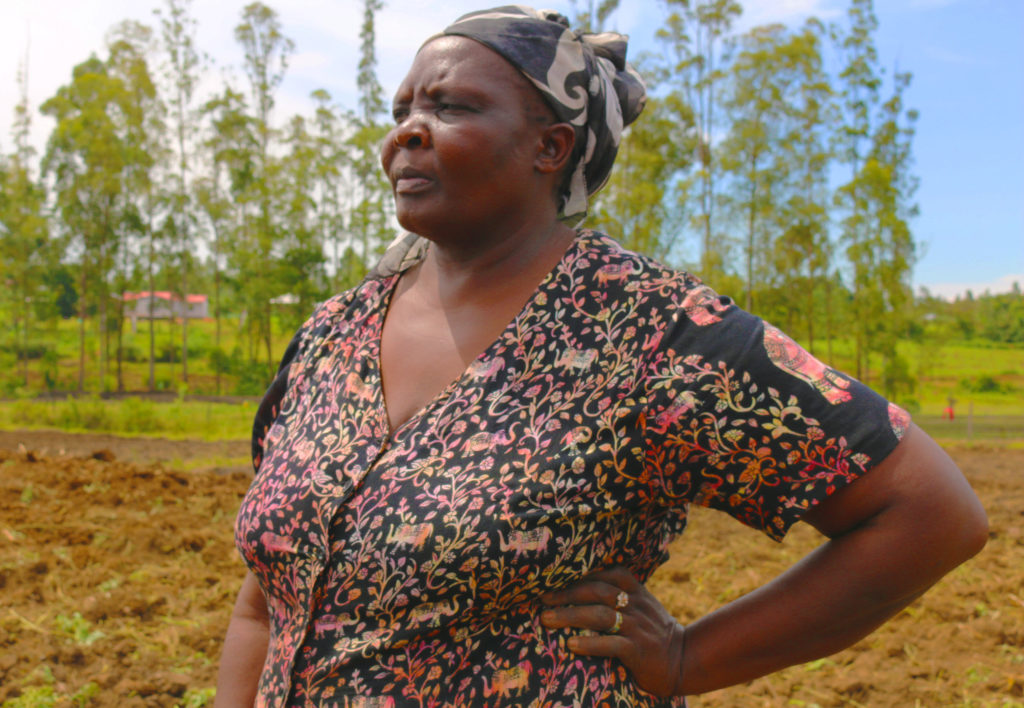The sun is hot and the air thick with moisture as we drive along an 80-mile stretch of road that connects the Western Kenyan cities of Kisumu and Homa Bay. It is farming that sustains the land and the people here. It sends children to school, pays for weddings and funerals and provides local communities with small but steady income throughout the year.
As we pull into one such farm we see Emily tending to her fields. She is bent over, focused on planting vines in the dirt – one after another. She turns her head and meets our gaze as we approach. “Welcome,” she says flashing us a huge smile. “My name is Emily Woromboto and this is my land. I am married to this place.”
With obvious pride she surveys the land before her. Row upon row of small green vines poke out from the dry dirt beneath. “Today I am planting my fields with the orange-fleshed sweetpotato” she says proudly. “This is a plant which has been introduced to me very recently. I have been taught that this sweetpotato has a lot of nutrition in it”.

